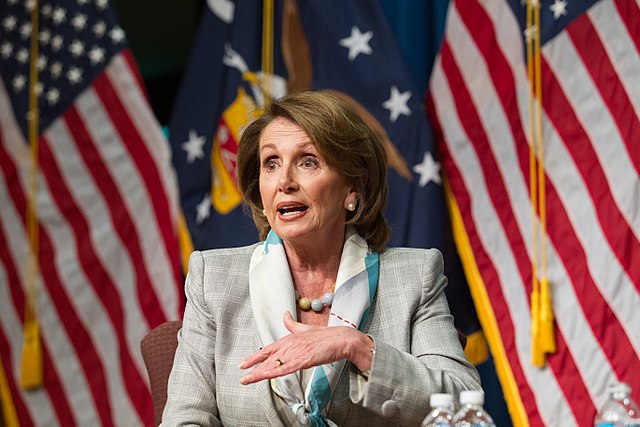
Wikipedia Commons
CV NEWS FEED // In order to keep bicameral control of the U.S. Congress in the 2022 midterm elections, House Democrats have passed a resolution to usurp the constitutional authority of states over redistricting.
The John R. Lewis Voting Rights Advancement Act, or H.R. 4, passed the House Tuesday in a 219-212 vote. No Republicans voted in favor.
Not only does conventional political wisdom dictate that the political party in control of the White House loses congressional seats in the midterm elections after winning a presidential election, but early reports suggest the Democrat majority in the House of Representatives may collapse on election day of 2022. Because conventional wisdom also says GOP dominance of state legislatures traditionally favors them in redrawing the boundaries of congressional districts to pick up seats in midterms, House Democrats introduced H.R. 4 to take away that power from the states.
The resolution means that non-elected federal judges and government bureaucrats would be able to usurp the states’ constitutional authority over congressional redistricting. Federal workers tend to favor the Democratic Party. During the 2016 presidential campaign, government workers across 12 agencies gave a total of $2 million for presidential candidates — with 95% going to Hillary Clinton.
“Congress should remember that it is the people who live in the Congressional districts who send representatives to the nation’s capital, not the other way around,” Maya Noronha, a civil rights attorney for the Independent Women’s Forum, tweeted about the resolution on Tuesday.
In an IWF analysis that she linked to in her tweet, Noronha provided a granular analysis of all the ways the new resolution seeks to redefine the law in favor of Democrats.
Based on population shifts, state legislatures routinely redraw the boundaries of congressional districts to better reflect neighborhoods and population shifts, an authority that conventionally favors Republicans due to the perception that they tend to dominate state-level governments while Democrats currently dominate the federal government.
By naming H.R. 4 after the late John Lewis, a longtime Georgia Democratic congressman and civil rights leader who marched with Rev. Martin Luther King, Jr., House Democrats reinforced the additional message that they consider GOP-led state control of federal congressional districts and elections to be a racist form of gerrymandering that disenfranchises black voters.
The House resolution builds upon a nationwide attack the Democratic Party has already launched on state control of federal elections and redistricting. Even before the U.S. Census Bureau released its 2020 statistics earlier this month, Democrats began filing preemptive lawsuits all over the country last spring.
Despite this onslaught, the Associated Press reported last week that the conservative majority on the U.S. Supreme Court will consign the Democrats to a state-by-state legal battle that seeks to win concessions from favorable judges in red states, a long-game strategy that will have repercussions beyond 2022 as they look ahead to 2024.
Edward Foley, an Ohio State University law professor, told the AP that party affiliation will likely impact those judicial decisions: “It depends on who your state judges are.”
However, Foley also noted that congressional action could change that, and some critics say H.R. 4 now provides the Trojan horse that Democrats would need.
In an Aug. 23 opinion piece for Fox News, Arizona Attorney General Mark Brnovich noted that House Democrats show no signs of relenting on the issue: “While this is the second attempt in consecutive sessions that House Democrats will vote to pass H.R. 4, it is the first time with both chambers of Congress under the Left’s control. Only the legislative filibuster in the Senate is likely to stop it from passing, which means it could be just two Senate votes away from happening in the future. States’ abilities to conduct their own elections – as prescribed by the U.S. Constitution – hang in the balance.”
In an Aug. 22 staff editorial, the Wall Street Journal called H.R. 4 “Nancy Pelosi’s next bad voting bill,” noting that it builds on the “political theater” of H.R. 1 earlier this year.
“The text of H.R.4 was unveiled last week, and it also deserves to die when the House votes on it this week,” the editorial stated.
The House’s passage of the resolution added considerable momentum toward the Democrats’ goal of maintaining power in the 2022 congressional midterms and 2024 presidential election.
(Wikimedia Commons/Official Department of Labor photo)
